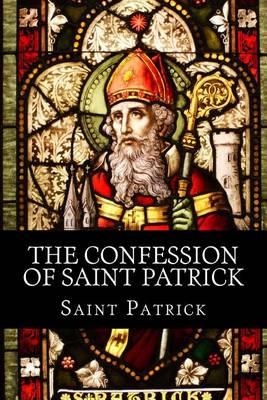Overview
Contrary to what many people believe, The Confession of Saint Patrick is not an autobiography. There are some autobiographical elements contained within, but it's more of a long letter written towards the end of his life in defense of a personal attack made against him by those in a position of power and authority. The Confession is so steeped in theology and scripture that, even in modern times, Patrick's intelligence and education show through. Reading his Confession it becomes quite clear that no matter what else you might say about St. Patrick's intelligence or authority, he was definitely a person rooted in the Bible. St. Patrick's Confession will prove a good read for Christians and non-believers alike. Any good man's regrets, or his handle on his faith, should give anyone of conscience, pause for personal reflection. No man, save the one, leaves this life innocent of sin, and St. Patrick's Confession should endear him to everyone.
Full Product Details
Author: Saint Patrick
Publisher: Createspace Independent Publishing Platform
Imprint: Createspace Independent Publishing Platform
Dimensions:
Width: 15.20cm
, Height: 0.20cm
, Length: 22.90cm
Weight: 0.064kg
ISBN: 9781482046045
ISBN 10: 1482046040
Pages: 38
Publication Date: 22 January 2013
Audience:
General/trade
,
General
Format: Paperback
Publisher's Status: Active
Availability: Available To Order

We have confirmation that this item is in stock with the supplier. It will be ordered in for you and dispatched immediately.
Author Information
Saint Patrick (387-493) was a Romano-British and Christian missionary, who is the most generally recognized patron saint of Ireland or the Apostle of Ireland, although Brigid of Kildare and Colmcille are also formally patron saints. Two authentic letters from him survive, from which come the only generally accepted details of his life. When he was about 16, he was captured from his home by Irish raiders and taken as a slave to Ireland, where he lived for six years before escaping and returning to his family. After becoming a cleric, he returned to Ireland as an ordained bishop in the north and west of the island, but little is known about the places where he worked. By the seventh century, he had come to be revered as the patron saint of Ireland. Most available details of his life are from later hagiographies from the seventh century onwards, and these are now not accepted without detailed criticism. Uncritical acceptance of the Annals of Ulster would imply that he lived from 340 to 440, and ministered in what is modern-day Northern Ireland from AD 428 onwards. The dates of Patrick's life cannot be fixed with certainty but, on a widespread interpretation, he was active as a missionary in Ireland during the second half of the fifth century. Saint Patrick's Day is observed on March 17, the date of his death. It is celebrated both inside and outside Ireland, as both a liturgical and non-liturgical holiday. In the dioceses of Ireland, it is both a solemnity and a holy day of obligation; outside Ireland, it can be a celebration of Ireland itself.




